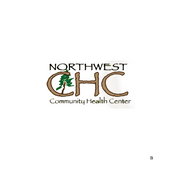4 FAQ About Breast Cancer Awareness Month

Breast cancer is the second most common type of cancer in women. The National Cancer Institute predicts that 1 in 8 women born today in the United States will get breast cancer at some point. However, most can survive as a result of early intervention and the guidance of their doctor. Here is a guide to commonly asked questions during breast cancer awareness month.
Questions About Breast Cancer, Answered
What is at a higher risk for breast cancer?
The cause of breast cancer is still unknown. However, the following factors have been linked to an increased likelihood of getting the disease. With that said, some women have no risk factors and still get breast cancer. Factors include being 50 or older, starting menopause after the age of 55, giving birth after the age of 30 or never at all, and women who began menstruating before the age of 12. History and genetics, like having breast cancer or non-cancerous breast diseases previously, or having the BRCA gene, can also increase your chances. Additionally, breast cancer has also been linked to lifestyles and behaviors like drinking alcohol, obesity and lack of exercise.
What are the symptoms?
Any new or unusual changes in your breast texture or appearance are important to tell your doctor. Any swelling with or without a lump or mass should be further examined. Changes in the skin like redness, scaling, irritation, or dimpling are common signs to look out for. Lastly, check the nipple for inversion, changes in texture, discharge, or pain.

What age should I start getting mammograms?
Mammograms allow doctors to detect breast cancer before it can be felt, making it a critical component of early intervention. When you go in for your first mammogram depends on your history and genetics. Women with a higher risk may begin getting mammograms at 30. Women of average risk should start getting mammograms annually between the ages of 40 and 44, as recommended by the American Cancer Society.
How can I reduce my chances of getting breast cancer?
There is no sure way to avoid getting breast cancer, but there are ways to lower your risk. Exercising regularly, drinking alcohol sparingly and maintaining a healthy weight can help. If you are a mother, breastfeeding for at least 6 months will help allow any cells in the breast tissue with potential DNA damage to be discarded, reducing your risk of breast cancer.
If cost has been keeping you from getting the healthcare you need, turn to Northwest Community Health Center in Libby, MT. They offer a wide range of quality healthcare services at low to no costs to patients. Experienced and qualified doctors utilize the latest technology in the field to ensure the complete health of your family from head to toe. To learn more about their medical services, visit the website. To schedule an appointment, call (406) 283-6900. Don't forget to ask about entering their drawing for women scheduling a mammogram before October 31st.
About the Business
Have a question? Ask the experts!
Send your question

